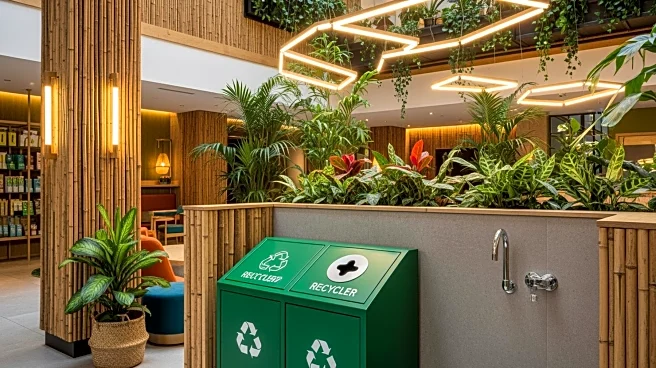What's Happening?
The hospitality industry is being called to move beyond surface-level sustainability actions and adopt transformative practices by 2026. Experts argue that the industry is currently trapped in a 'low impact
loop,' focusing on minor adjustments like showerhead flow rates and light bulb wattage. Instead, they advocate for systemic changes, such as redefining success metrics to include environmental and social gains, and integrating sustainability into core business strategies. The call to action emphasizes the need for leadership training, investment in technology, and collaboration between academia and industry to drive meaningful change.
Why It's Important?
As environmental challenges intensify, the hospitality industry faces increasing pressure to adopt sustainable practices that go beyond mere compliance. Transformative sustainability can enhance long-term profitability, business resilience, and brand value. By prioritizing systemic changes, the industry can contribute to global efforts to mitigate climate change and promote social equity. The shift towards regenerative business models and transparent reporting can position hospitality as a leader in sustainability, attracting environmentally conscious consumers and investors.
What's Next?
The industry is expected to focus on implementing higher-leverage interventions, such as redesigning procurement protocols and redefining success metrics. Collaboration with industry organizations and the adoption of comprehensive data platforms for sustainability KPIs will be crucial. As 2026 approaches, hospitality businesses may face increased regulatory demands and consumer expectations for sustainable practices. The integration of technology, such as AI and blockchain, could facilitate transparency and accountability in sustainability efforts.
Beyond the Headlines
The push for transformative sustainability in hospitality reflects broader societal shifts towards environmental responsibility and ethical business practices. The industry's response could influence other sectors, encouraging a collective move towards regenerative models. The emphasis on cultural change and leadership training highlights the importance of mindset in driving sustainable transformation.










